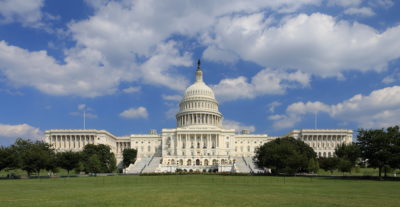Featured Article
Exploring Economic Consultants’ AI Capabilities for Litigation
This article compares 12 US economic consulting firms' AI capabilities, particularly those used to support litigation engagements. It finds that Cornerstone, Brattle, and AG have material AI capabilities and experience applying them to litigation. A second tier of…
Welcome to the Economics of Growth, a collection of articles about economic, corporate, and personal growth written by Ed Egan.

Ed is an applied micro-economist conducting research in business economics, finance, and public policy. Much of his work leverages big data analytics and machine learning to understand important drivers of economic growth, including high-growth high-tech startups and markets for intellectual property.
Prior to academia, Ed was a serial fintech entrepreneur and worked for a cross-border venture capital fund focused on enterprise software.
Ed did his Ph.D. at the Haas School of Business, U.C. Berkeley, before being appointed the Innovation Policy Fellow at the National Bureau of Economic Research. He subsequently held faculty positions at Imperial College Business School and Georgetown University’s McDonough School of Business, where he developed new entrepreneurship curricula.
From 2015 to 2018, Ed was a fellow of Rice University’s Baker Institute and the founding director of its McNair Center for Entrepreneurship and Innovation. This site also provides an archive for more than 50 articles written by the McNair Center’s students and staff.
Visit the Research Wiki
The other side of this website hosts a Semantic MediaWiki-based collaboration platform, which provides a development environment, documentation, and content, for economic research. Previous incarnations of this wiki supported my colleagues at U.C. Berkeley, the NBER patent data project, the McNair Center, the Kauffman Incubator Project, and research done by some affiliated economists. It is now (largely) open to the public, and may be of interest to economists, other social scientists, computer scientists, and data scientists, as well as some finance professionals. It has almost 3,000 pages of content, developed by about a hundred team members, including the background material for many of the articles archived on this site.


Research
Become an affiliate and develop academic research using the wiki, or view hundreds of summaries of research articles and U.S. federal legislation.

Library
Discover thousands of pages of information about everything from our research computing infrastructure to the economics of true love.
McNair Center Articles
This section features some of the best articles written by students at the McNair Center for Entrepreneurship and Innovation at Rice University’s Baker Institute. This site archives the full collection of McNair Center articles for future generations of entrepreneurship and innovation policy researchers.
Patents and the Cancer Moonshot
Patents and the Cancer Moonshot: How Subject Matter Eligibility Affects Research When standard cancer treatments fail, some doctors are turning to the developing field of immunotherapy. Immunotherapy involves treatments that use the patient’s own immune system to combat cancer. Both pharmaceutical companies and the federal government see the promise in funding research in this innovative field. However,…
Big Problems for Small Practices
Big Problems for Small Practices: Examining the Effect of the Affordable Care Act on Entrepreneurship in the Healthcare Field The doctor-patient relationship is an important aspect of healthcare. Small physician practices, offices with no more than a couple doctors, have been the long-standing foundation of this relationship. Unfortunately, legislative changes disincentivize doctors from being small…
Congress Turns Its Attention to Entrepreneurship and Innovation—But Does It Take Effective Action?
Legislation passed during the first three months of the 115th Congress pays disproportionate attention to entrepreneurship and innovation. McNair Center research shows that in a typical congressional session, less than 2 percent of legislation introduced is relevant to E&I issues. As of March 23, three of the ten bills that have become law during the 115th Congress directly address entrepreneurship and…
Mile-High Entrepreneurship
Boulder has long been considered Colorado’s startup hub, but Denver is emerging as a strong contender. Mentoring and venture capital support have helped Denver’s ecosystem expand rapidly so that it is well on its way to becoming self-sustaining. Denver has garnered a reputation as one of the best places for high-tech, high-growth ventures.The total number…
Silicon Valley: A Powerhouse for Innovation
Silicon Valley’s economy is a powerhouse. Representing 14% of U.S. Gross Domestic Product, if California were a country, it would have the sixth biggest economy in the world. Although it has remained successful for decades, California was not always the leader that it is today. What about California led it to become a high-tech phenomena?…





